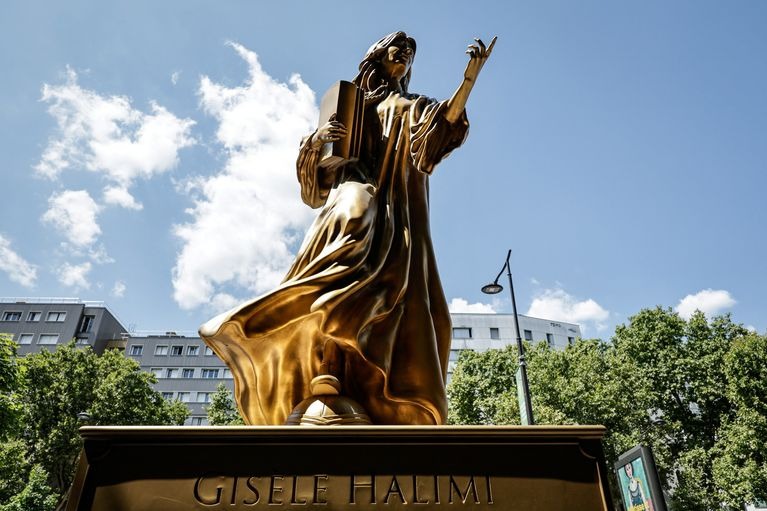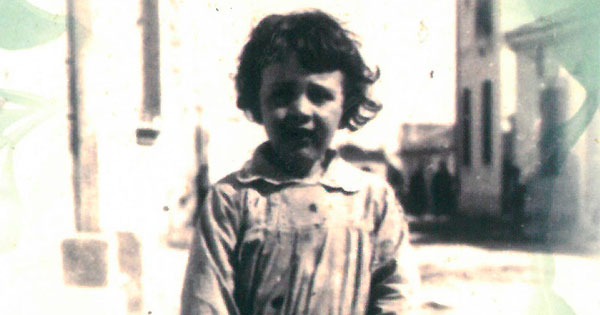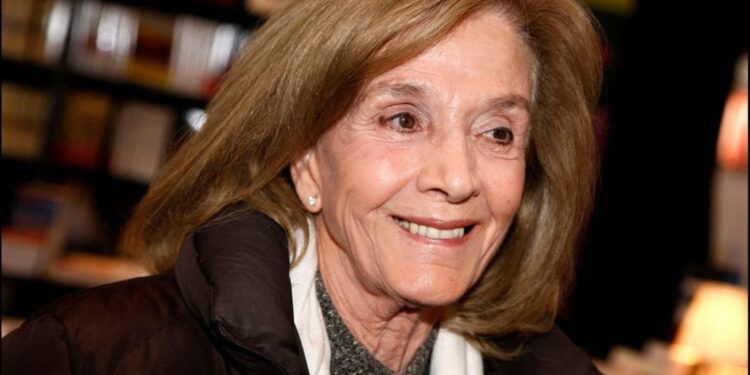Paris pays tribute to him with a statue, four meters high, erected in July 2025 in the north of the capital, rue de la Chapelle. This golden sculpture of Gisèle Halimi, lawyer, activist and politician, who died in July 2020, is now part of an urban route dedicated to the great female figures honored during the opening ceremony of the Paris 2024 Olympic Games. She joins nine other women who have marked history, in a district in full transfer where the city of Paris intends to register the struggles for equality in public space.
Gisèle Halimi has its place. Not only for the scope of her fights, but also for the constancy with which she defended, throughout her life, the principles of justice, dignity and freedom.


Born Zeiza Gisèle Élise Taïeb, July 27, 1927 in La Goulette, near Tunis, she grew up in a modest Jewish family. As a child, she became aware of the gender inequality very early on: her father, she said, would have preferred her to be a boy. She refuses the roles that we are trying to impose on her, protests against compulsory prayers at school, rejects the tasks reserved for girls. This refusal of submission, from childhood, is the starting point for a commitment of a lifetime.
His attachment to Tunisia will remain deep. She will not cease to claim her Tunisian, Mediterranean, Jewish and secular roots, and to assert how much her childhood in La Goulette had shaped her way of thinking, to revolt, to love. She will devote several books to this period, in particular Orange milkwhere she tells her childhood in this port suburbs of Tunis, and Fritnaan intimate and overwhelming account dedicated to her mother, in which she returns to the ambivalence of their relationship and the education of girls in a patriarchal society.


In Kahenapublished in 2006, she identified with this Berber queen who resisted the Arab invaders in the 7th century, and whose history, long erased or mythified, resonates with her as a symbol of female revolt. Through this figure, Halimi draws from the North African roots a model of rebellion, and a way of connecting his own feminist commitment to a larger memory, often marginalized. It is also in this book that she more directly questions her multiple identity, at the crossroads of several affiliations, in a political world where the universal is too often thought of the masculine.
Lawyer at the Tunis bar, then in Paris, she joined the 1950s alongside the Tunisian independence activists, then in the defense of militants of the Algerian FLN. She became famous in 1960 for defending Djamila Boupacha, an activist tortured and raped by French soldiers. By making this affair public, it puts at the heart of the debate realities that French society wanted to ignore: torture, war, rape as a weapon of domination.
In the 1970s, it became one of the central figures of French feminism. She co -bonds with Simone de Beauvoir the movement Choose the cause of womensigns the manifesto of the 343, and led the Bobigny trial in 1972, where she defended a young girl prosecuted for having aborted after a rape. This highly publicized trial will help open the way to the Veil law of 1975, legalizing abortion in France.
MP, Ambassador of France to UNESCO, tireless essayist and activist, Gisèle Halimi has never stopped fighting, refusing compromises, relentlessly affirming that gender equality and justice for peoples cannot be dissociated.
After the 2011 Tunisian Revolution, Gisèle Halimi multiplies speaking to support the democratic transition. She goes several times to Tunisia, meets associations, political leaders, is addressed to the media, and affirms, in a platform published in The worldthat ” Tunisia has shown the way to courage ». It pleads for a secular state, and insists on the importance of preserving the achievements of Tunisian women, while calling for registering real gender equality in the new Constitution. With each visit, it renews its attachment to the country, while warning against possible rights in matters of rights.
His commitment to Tunisian women is tirelessly. She participates in meetings with young activists, encourages new generations to make their voices heard, and warns against political compromises on the back of women’s rights. For her, equality is not negotiable. She recalls that emancipation goes through education, economic independence, and control of her own body. His word remains lucid, firm, deeply political.
This is not the first time that Paris has honored its memory. Already in 2021, a Gisèle-Halimi walk had been inaugurated on the banks of the Seine, between the Alma bridge and the Pont des Invalides, in the neighborhood where it lived. The statue recently installed on rue de la Chapelle comes to write its name a little more permanently in the landscape of the capital.
But beyond Paris, it might be time for Tunisia itself to pay homage to this woman born on her soil, formed by her culture, and who brought it so high. Gisèle Halimi honored Tunisia with her fights, her integrity and the clarity of her word. She made, far beyond the borders, a free voice, anchored in her Tunisian history, but turned towards the universal.
Neïla Driss








